NT Government
-
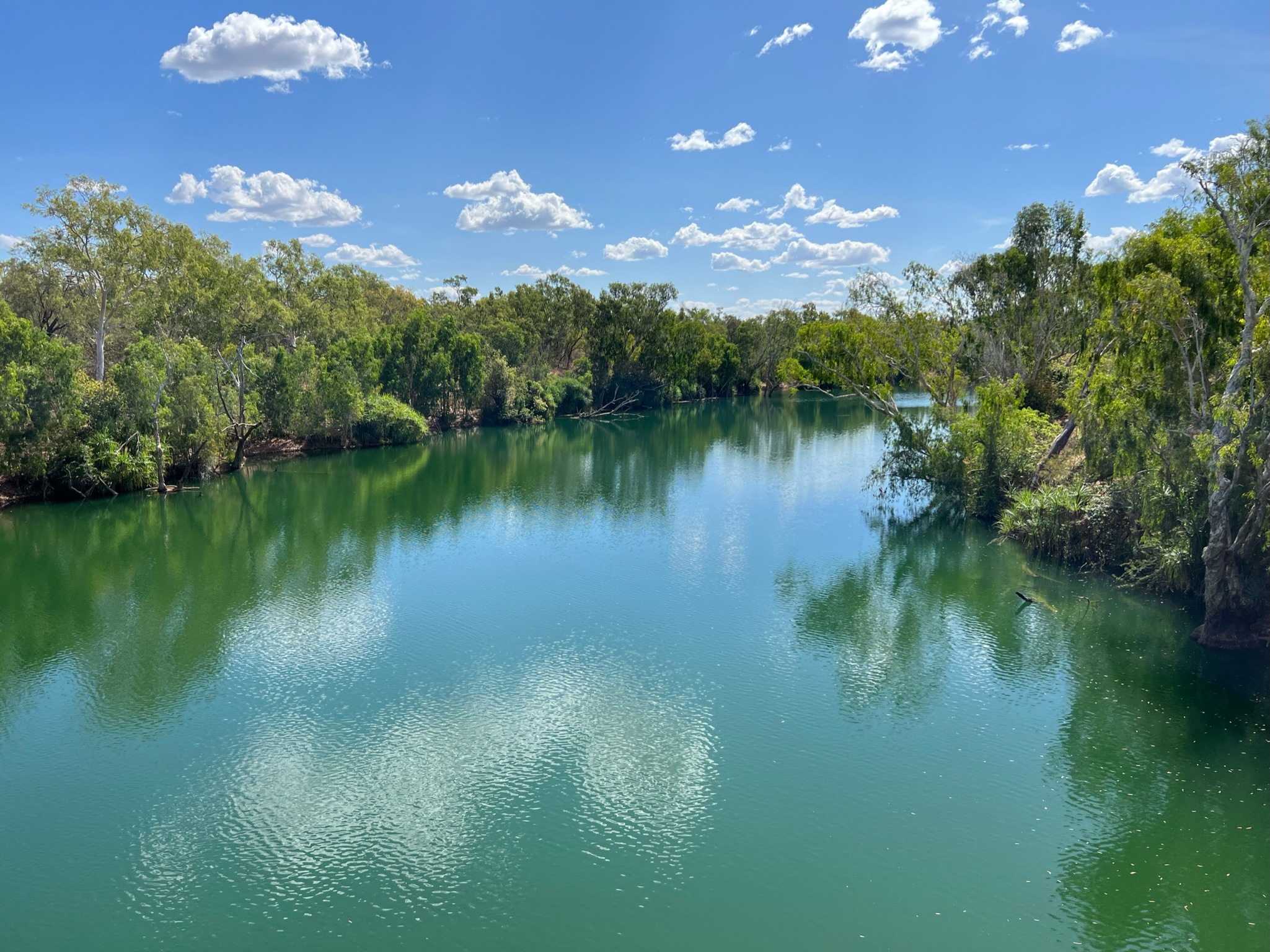
CSIRO report spells out huge risk to Roper River from industry expansion
Learn moreMedia Release
18 April 2024
Water extraction from one of Australia’s last remaining free-flowing rivers – the Roper River, could see a 66,000-fold increase from a massive expansion of irrigated agriculture, according to a new CSIRO report.
The Roper River Water Resource Assessment outlines possible scenarios of 660 billion litres of surface water a year for crops such as cotton, and the requirement of 40,000ha of land cleared across the catchment.
The technical reports examine the possibility of large-scale floodplain harvesting across the Roper Catchment, as well as the cumulative impacts of up to five in-stream dams, including a hydroelectric dam on the Wilton River near Ngukurr.
“This report highlights the huge scale of development and the impacts on communities, people and ecosystems that could occur if the Roper River is not protected,” said Pew’s NT Manager Mitch Hart.
The report highlights the importance of community values, stating that the ‘nature and scale of future development of irrigation would depend heavily upon community and government values and acceptance of potential impacts to water‑dependent ecosystems.’
“Thousands of Territorians have already stood up in support of protection for the Roper – including demands that no more water be taken from the river, and no new dams be built.”
“First Nations people along the river have demanded no more water be taken, and for communities to be properly consulted on how their Country and the Roper is protected.”
“Communities want our rivers kept healthy and it’s crucial that the Government now acts to protect the Roper River before it is too late.
“This report talks to the possibility of groundwater extraction from the river system of up to 125 GL, which could have devastating impacts on the future health of the river system. To put this in perspective, this is three times Darwin’s annual drinking water supply.”
The Roper River catchment is under increasing pressure from a string of water allocations made by the NT Government in the past six months. The recently released Georgina Wiso Water Allocation Plan and Surface Water Take – Wet Season Flows Policy, plus the draft Mataranka Tindall Water Allocation Plan allow for more than 280 billion litres to be taken from the Roper River catchment each year.
“Ultimately, this report points to the urgent need for the Roper to have long-term protections in place, avoiding a Murray-Darling style disaster before it’s too late. It’s imperative that governments listen to the voice of communities – particularly First Nations – when it comes to protecting the Roper,” said Mr Hart.cotton, cotton industry, northernterritory, NT Government, roperriver
-
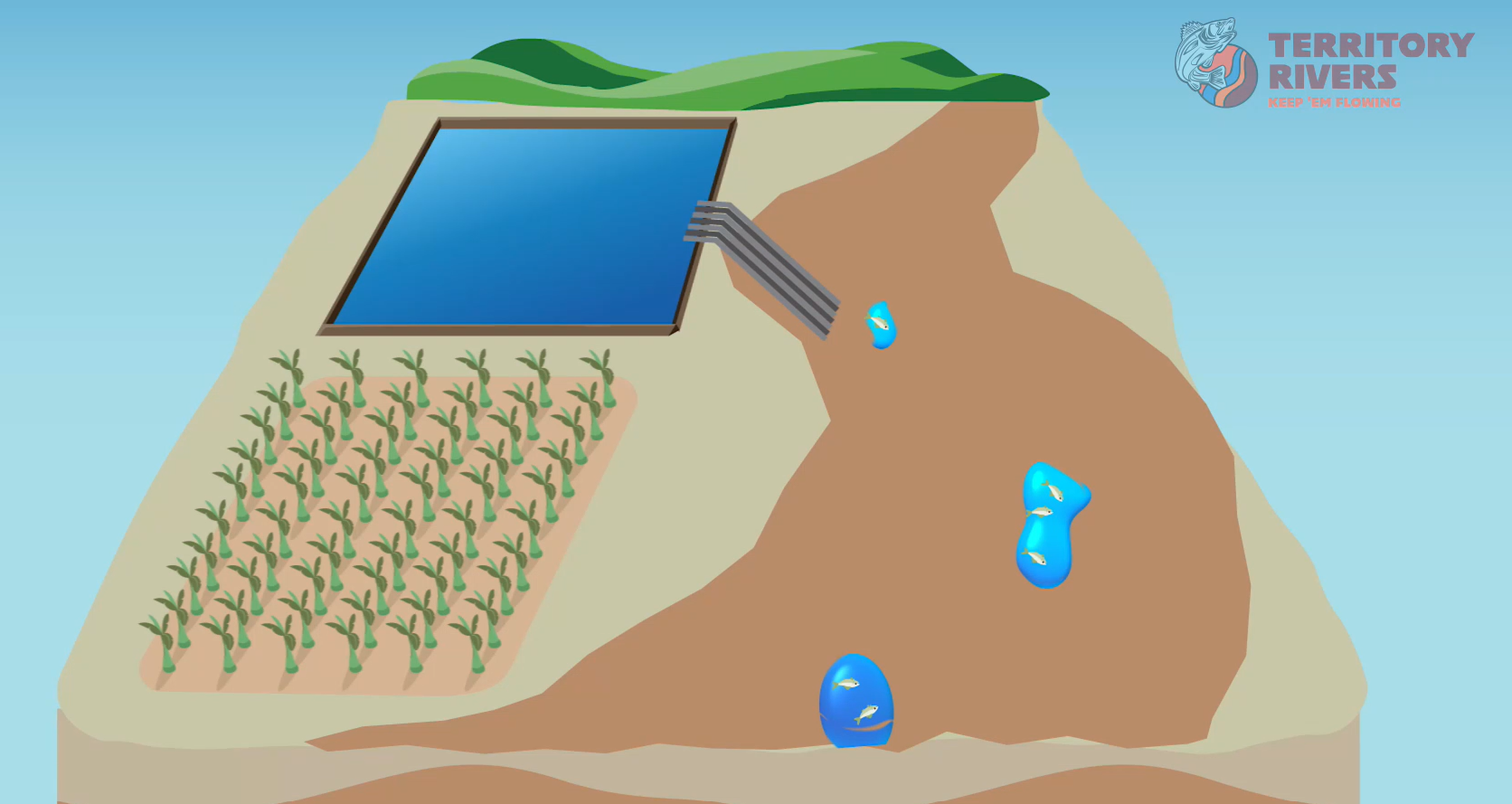
NT ‘FLOODPLAIN HARVESTING’ POLICY RISKS ANOTHER MURRAY-DARLING DISASTER
Learn moreMedia Release
15 February 2024
Today’s release of the Northern Territory Government’s Surface Water Intake – Wet Season Flows Policy will allow billions of litres of surface and floodplain water to be taken from rivers and risks the destruction of rivers like the Daly and Roper.
Environment Centre NT Executive Director, Kirsty Howey:
“Territorians are rightly alarmed about today’s announcement. The NT Government has opened the floodgates for huge amounts of water to be taken by large agribusinesses from our already stressed river systems,” she said.“It’s clear that the NT Government is backing big industry over the views and rights of local communities and Traditional Owners when it comes to our environment.
“This policy will allow for more water to be sucked from river systems and stored in private dams for thirsty cotton crops, fracking and mining. This could have devastating impacts on our rivers and floodplains – impacting on endangered species, tourism businesses, and putting our multi-million dollar fishing industry at risk.“The NT Government are going in entirely the wrong direction with this policy. The NT community has no reason for confidence in the current NT water laws to be able to regulate industry’s water take.
“Politicians should be protecting our intact rivers, not facilitating their destruction. This is the same approach which has contributed to the devastation of the Murray Darling Basin – Territorians don’t want to make the same mistakes here,” said Ms Howey.Pew Charitable Trusts Northern Territory Manager Mitch Hart:
“With the release of this policy, the Northern Territory Government has failed the test of protecting the Territory’s precious rivers,” he said.
“The Territory’s intact tropical river systems are some of the last in the world. They are already under immense pressure. Taking more water from the NT’s rivers and floodplains will have disastrous impacts on the future health of these systems – science is very clear on this.
“Top End river management needs to be approached in a completely different way to ensure that we don’t repeat the dire mistakes made in rivers elsewhere in Australia.
“That means involving communities in developing management plans and mapping out new pathways for protection right across the Territory – using local Indigenous knowledge incorporating best science around water flows, native species’ requirements and climatic change impacts.”
END.
Territory Rivers: Keep ‘Em Flowing an alliance of non-government organisations, local communities and scientists working to safeguard the health of Top End rivers.
-
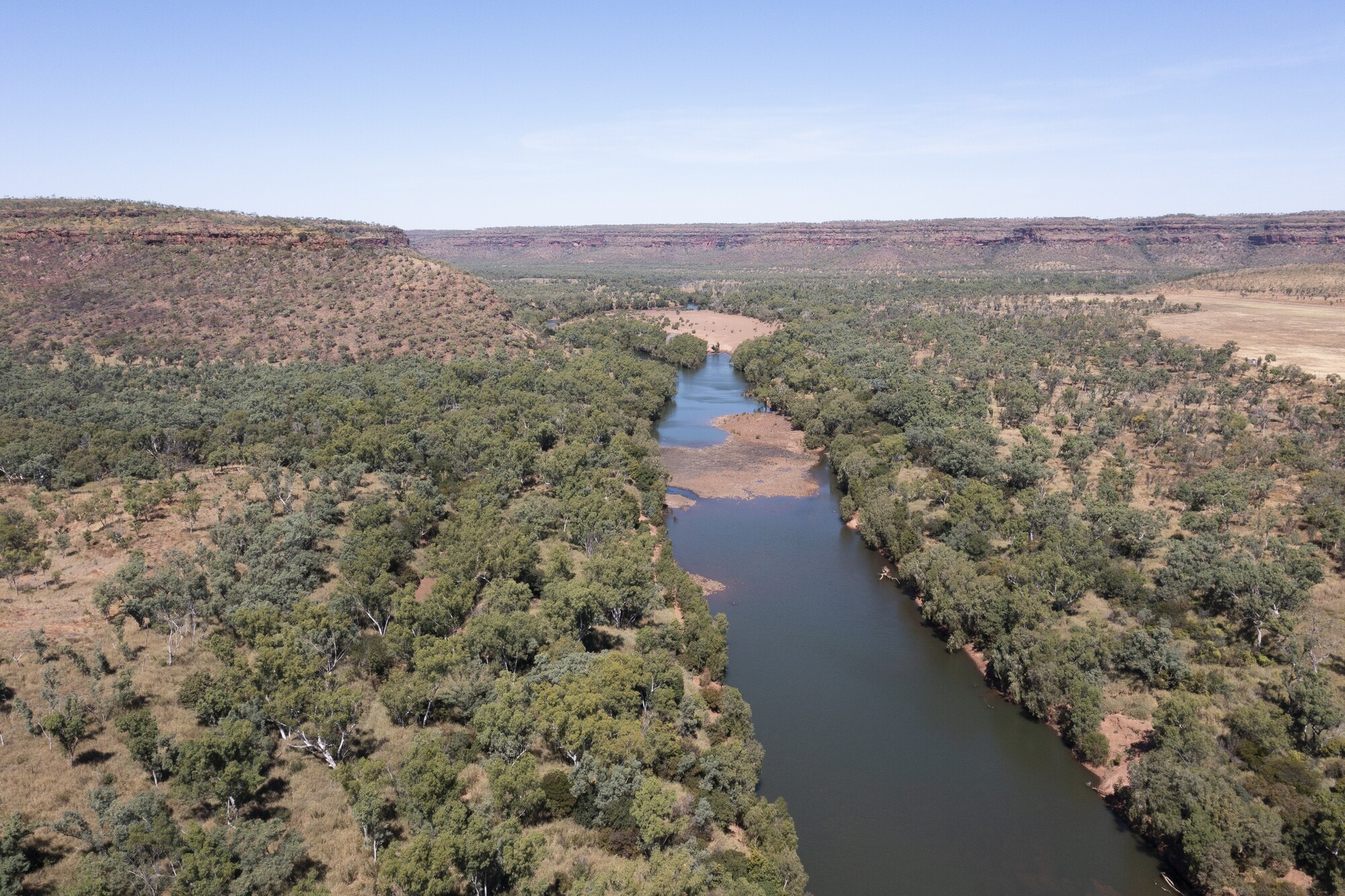
Video: Natural Values of Territory Rivers
Learn moreWitness what makes the treasures of the Northern Territory special! Our pristine rivers are a true natural wonder and are unique in this world.
Unlike elsewhere in the world, Territory rivers like the Daly, Roper, Adelaide and Victoria remain in good shape – they haven’t been dammed, over-extracted and polluted like rivers down south.
The health of these rivers is important for providing drinking water, food, jobs, and underpinning culture.
They also support a wide range of unique species, some of which are not found anywhere else.cotton, cotton industry, Daly River, floodplain harvesting, floodplainharvesting, land clearing, murraydarlingbasin, NT Government, roper river
-

Video: Floodplain Harvesting in the Northern Territory
Learn more“We’re looking down the barrel of a repeat of the Murray-Darling Basin here in the Top End and it’s something that the community is absolutely opposed to.”
Kirsty Howey from Environment Centre NT explains the troubling process of ‘floodplain harvesting’ and why it risks our rivers.
cotton, cotton industry, Daly River, floodplain harvesting, floodplainharvesting, land clearing, murraydarlingbasin, NT Government, roper river
-
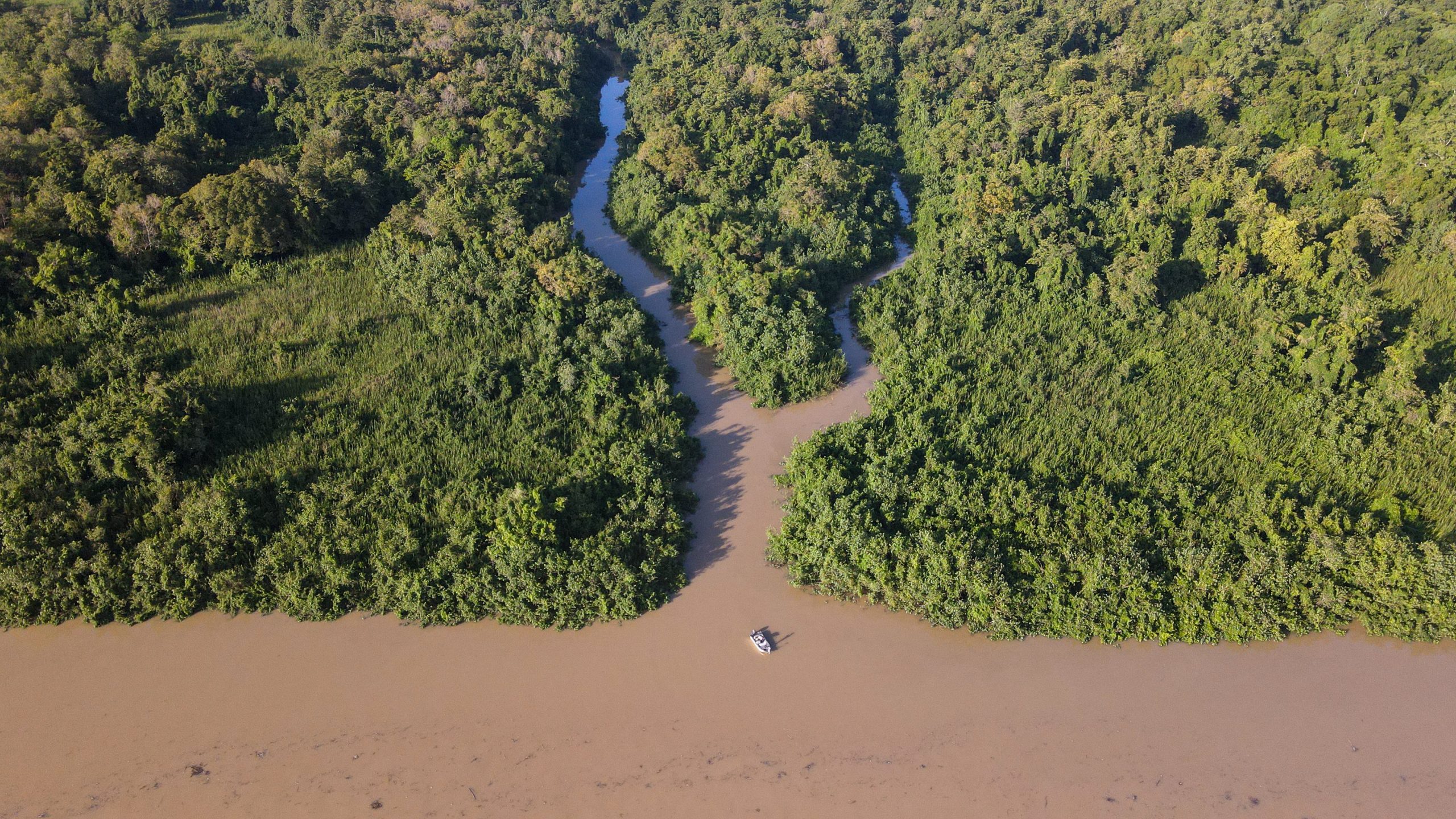
‘NT government-commissioned probe of report predicting cotton environmental impacts finds most claims supported’: ABC
Learn moreRead the story HERE, listen HERE, or watch it HERE.
An independent assessment that the Northern Territory government commissioned to find out whether a green group’s report falsely claimed developing a major cotton industry could damage rivers and aquifers, has found most of its conclusions were correct.
Story by Jane Bardon. (ABC 2 January, 2024).You can sign our action asking the NT Govt to act to protect our rivers, floodplains and surrounding savannas HERE.
cotton, cotton industry, Daly River, environment, floodplainharvesting, land clearing, murraydarlingbasin, NT Government, Territory rivers, waterextraction
-
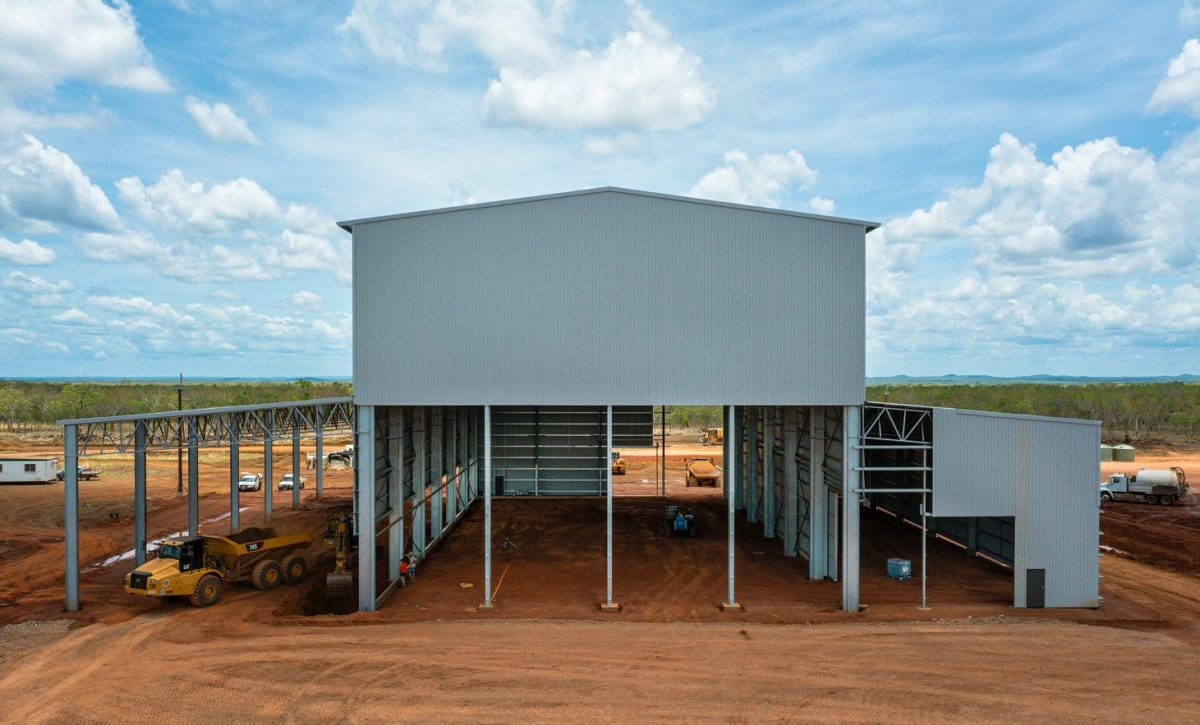
Cotton gin opening increases Northern development tussle: ABC PM
Learn moreListen to the story HERE.
The opening of the NT’s first cotton processing plant is being touted as an important step towards developing the North by the industry, but increasing community concerns over water use.
Interviews:
Sue Brosnan, Katherine cotton gin project coordinator
David Connolly, Tipperary Stations Group General Manager
Rosina Farrell, Jilkminggan Mangarrayi community leader
Kirsty Howey, NT Environment Centre
This report is from Jane Bardon. (ABC PM 15 Dec 2023 ).See updates and developments from this story HERE.
You can sign our action asking the NT Govt to act to protect our rivers, floodplains and surrounding savannas HERE.
cotton, cotton industry, Daly River, environment, floodplainharvesting, land clearing, murraydarlingbasin, NT Government, Territory rivers, waterextraction
-
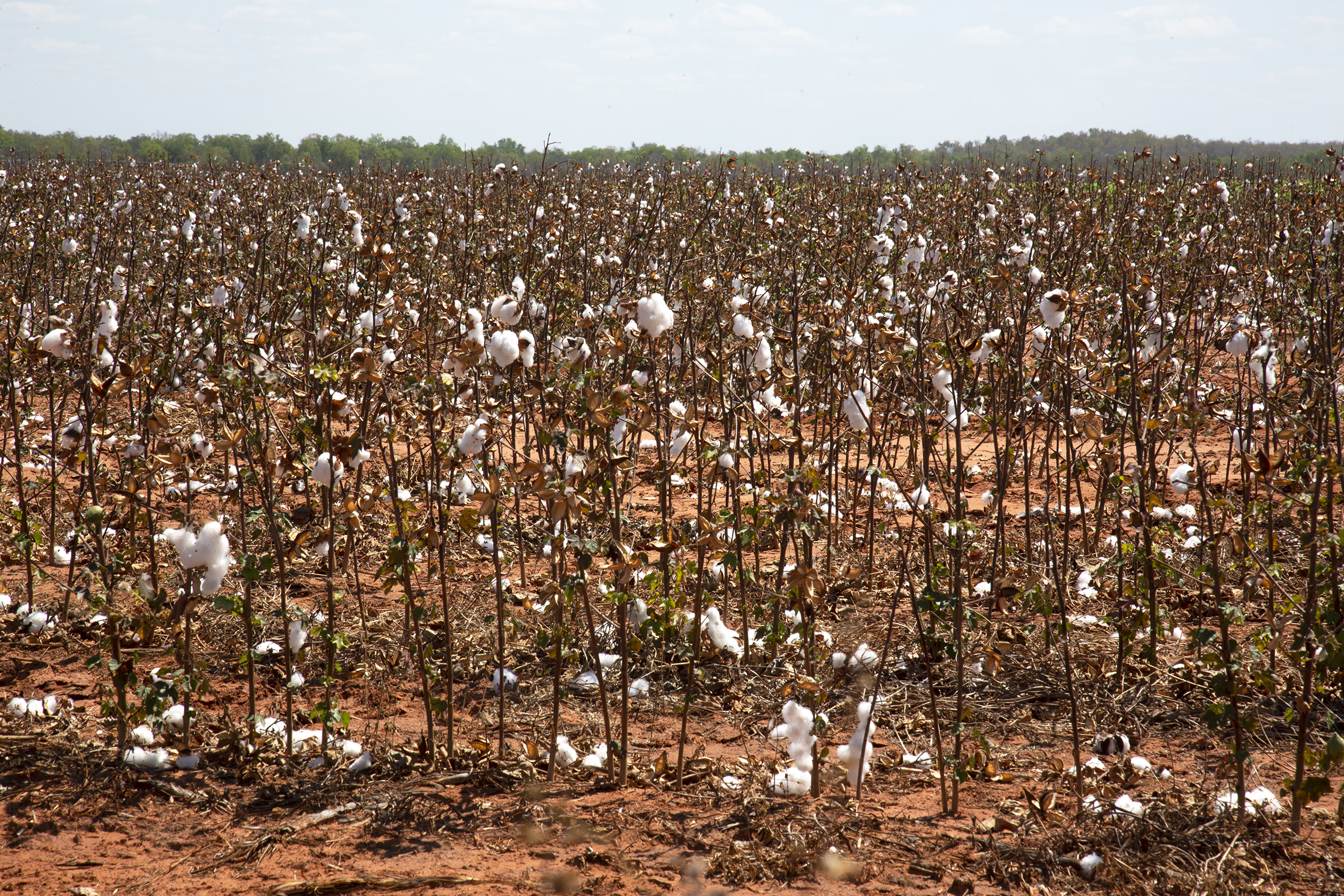
Northern Territory Government rolling out the red carpet for 100,000 hectares of cotton, fuelling more destructive land clearing
Learn moreMedia Release
Environmental groups have today expressed outrage at the Northern Territory Government’s plan to support and enable hundreds of thousands of hectares of native vegetation to be bulldozed for water-hungry crops.
The NT government today released their ‘Agribusiness Strategy’, which includes:
- A target of 100,000 hectares of “broadacre cropping” by 2030, principally cotton
- Proposed changes to existing pastoral land tenures to allow cropping, land-clearing and large-scale farming practices
- Reducing timeframes for obtaining land clearing and water licencing approvals
- Changes to the Pastoral Land Act to circumvent the risk of future legal action against land clearing and native vegetation destruction
The release of the strategy follows a 7.30 Report investigation highlighting repeated instances of alleged unlawful land clearing in the Northern Territory, an investigation by Minister Tanya Plibersek about the allegations, an increase of 300% in land clearing approvals in the NT, and a Supreme Court challenge to a pastoral land clearing permit by ECNT and the Northern Land Council, which argues that clearing land to grow cotton is not allowed under the Pastoral Land Act because it is not a “pastoral purposes”.
The Northern Territory is the only jurisdiction in the country with no specific native vegetation laws and no overarching biodiversity conservation strategy to protect ecosystems already collapsing.
The Environment Centre NT is calling on Environment Minister Tanya Plibersek to intervene to stop rampant biodiversity destruction by the Northern Territory and ensure proper consultation with Traditional Owners. They are also calling for new NT-specific nature laws that protect, rather than destroy, our precious ecosystems.The cotton target comes as representatives from the agricultural industry gather in Darwin for the 2023 Northern Australia Food Futures Conference.
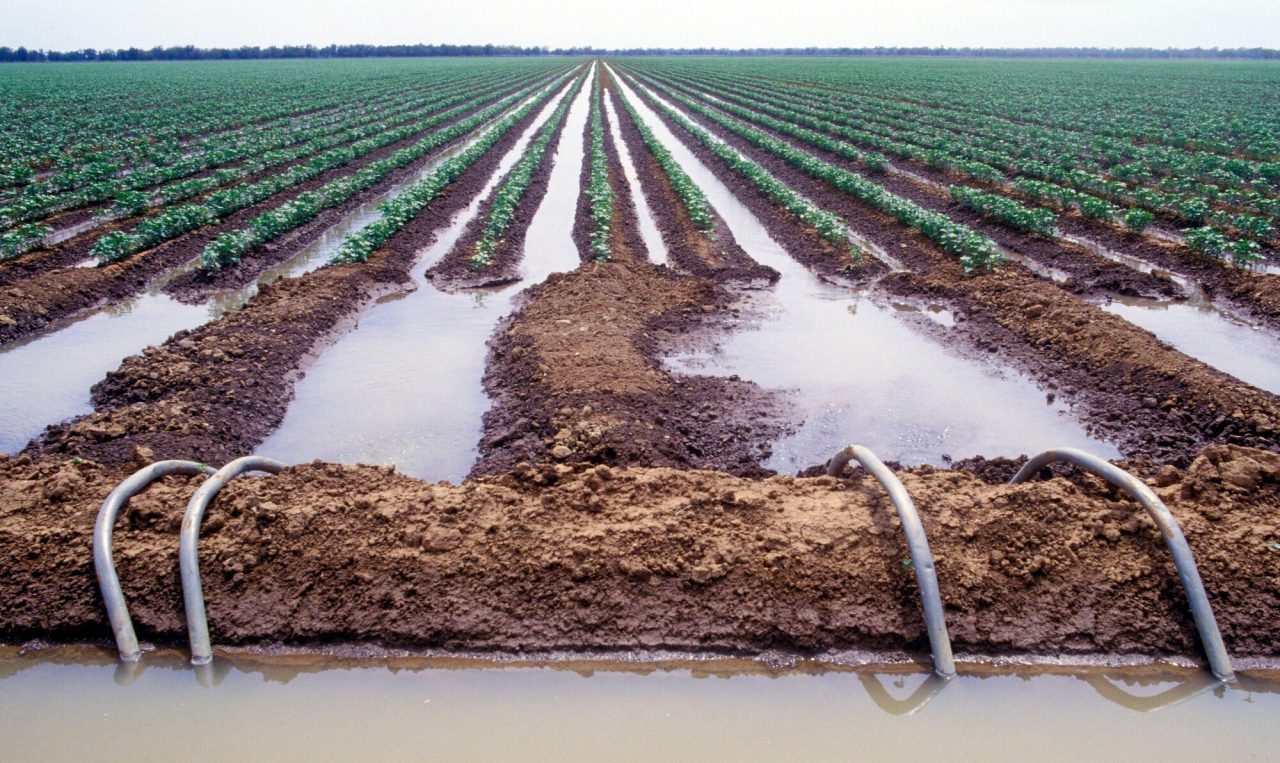
Image: Crops under irrigation at Kununurra on the Ord river Western Australia . Executive Director, Kirsty Howey:
“The NT Government have finally put in writing what we’ve long suspected – that they have a long-term plan to actively support a huge expansion of large-scale cotton production which will fuel the biodiversity crisis while our ecosystems are literally collapsing.”“Australians should be alarmed about today’s announcement. For a long time, we’ve seen an ineffective, opaque, and ill-equipped system that has been only too happy to rubber stamp permits for bulldozing – all the while riding rough-shod over the views and rights of local communities and Traditional Owners.”
“Now they’ve gone one step further – pre-emptively enabling the cotton industry to expand with even less scrutiny, whilst preparing to shield themselves from future legal challenges.”
“Politicians should be standing up for our intact rivers and savannas, not facilitating their destruction.”
“The Northern Territory’s savanna is a national treasure and the world’s largest remaining intact tropical woodland – but it’s at risk of being bulldozed by cotton producers.”
“Big cotton devastated the Murray Darling Basin – we don’t want to make the same mistakes
here,” said Ms Howey. -
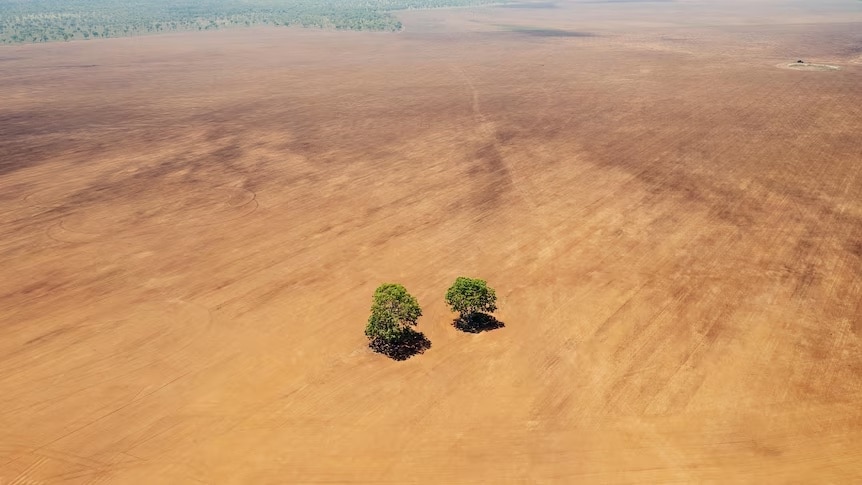
Land clearing permit challenged on Auvergne cattle station
Learn moreThe Northern Territory government is facing two separate lawsuits over a land clearing permit its critics say could damage important habitats and jeopardise sacred Indigenous sites.
Key points:
- A cattle station south-west of Darwin, near the Victoria River,m has been provided a permit to clear land for both cattle and a cotton growing trial
- The Northern Land Council and Environment Centre NT are taking legal action to have the permit overturned
- The permit was granted under Labor’s new streamlined approvals process
In November 2022, the Pastoral Land Board provided a permit for clearing of about 900 hectares on Auvergne Station, south-west of Darwin near the Western Australian border.
The land will predominantly be used for cattle grazing and fodder, but land clearing documents show about 250 hectares of that land is intended for a cotton growing trial.

The Environment Centre NT is seeking to have the permit revoked, saying that clearing land to grow cotton is not allowed under the type of permit that was granted.
“Right now, land clearing is skyrocketing in the Northern Territory, spurred in part by the cotton industry’s huge expansion plans. Land clearing is the biggest threat to biodiversity in Australia, and clearing for cotton will decimate local wildlife, impact rivers and add to greenhouse gas emissions.”
ECNT director Kirsty HoweyThe Northern Land Council is also launching legal action against the clearing. It says the rights of native title-holders were overlooked in the decision-making process, and is concerned that sacred sites are being put at risk by land clearing, claiming the land board doesn’t require applicants to obtain sacred site clearances.
“The land that is being cleared across the Northern Territory is not forgotten land that no one cares about. It belongs to Aboriginal people. There are legal rights over that land that must be respected.”
Northern Land Council Chief executive Joe Martin-JardWhat you can do
cotton, cotton industry, environment, floodplainharvesting, land clearing, murraydarlingbasin, NT Government, Territory rivers, Victoria River, waterextraction
-
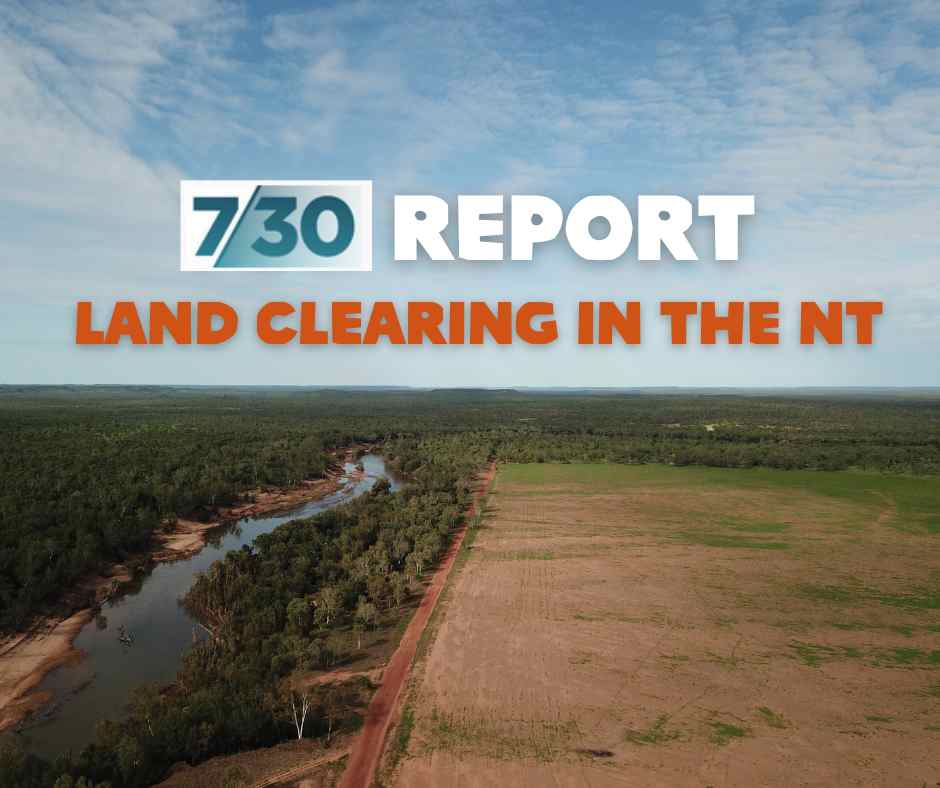
‘Aboriginal land council levels criticism at NT government over unregulated land clearing’: ABC
Learn moreExcerpt: “A prominent lobby group says land clearing is risking the NT’s river networks — which are some of the most pristine in the world — and the failure to properly regulate land clearing for a cotton industry is disappointing.
Warren de With, the president of the Amateur Fishermen’s Association of the NT (AFANT), said extensive clearing near the Daly River — a tourism and barramundi fishing mecca — was of most concern.”
Read the full story HERE or watch it below.
ABC TV – LAND CLEARING: Aboriginal land council ‘loses confidence’ with NT Govt. Report by Roxanne Fitzgerald. You can also listen to the NT Country Hour segment below:
You can sign our action asking the NT Govt to act to protect our rivers, floodplains and surrounding savannas HERE.
cotton, cotton industry, Daly River, environment, floodplainharvesting, land clearing, murraydarlingbasin, NT Government, roper, roper river, Territory rivers, waterextraction
-

‘Turning a blind eye’ to cotton and land clearing in the NT: ABC 730
Learn moreRead the story HERE or watch it below.
‘The Northern Territory is home to one of the world’s last untouched tropical savannas. That fragile landscape and its rivers are now the new frontier for the nation’s cotton industry.
But satellite images suggest land clearing is taking place without a permit, raising questions about the Territory government’s oversight.’
This report is from Roxanne Fitzgerald and producer Hannah Meagher. (ABC 7.30 January 11, 2023).See updates and developments from this story HERE.
You can sign our action asking the NT Govt to act to protect our rivers, floodplains and surrounding savannas HERE.
cotton, cotton industry, Daly River, environment, floodplainharvesting, land clearing, murraydarlingbasin, NT Government, Territory rivers, waterextraction
